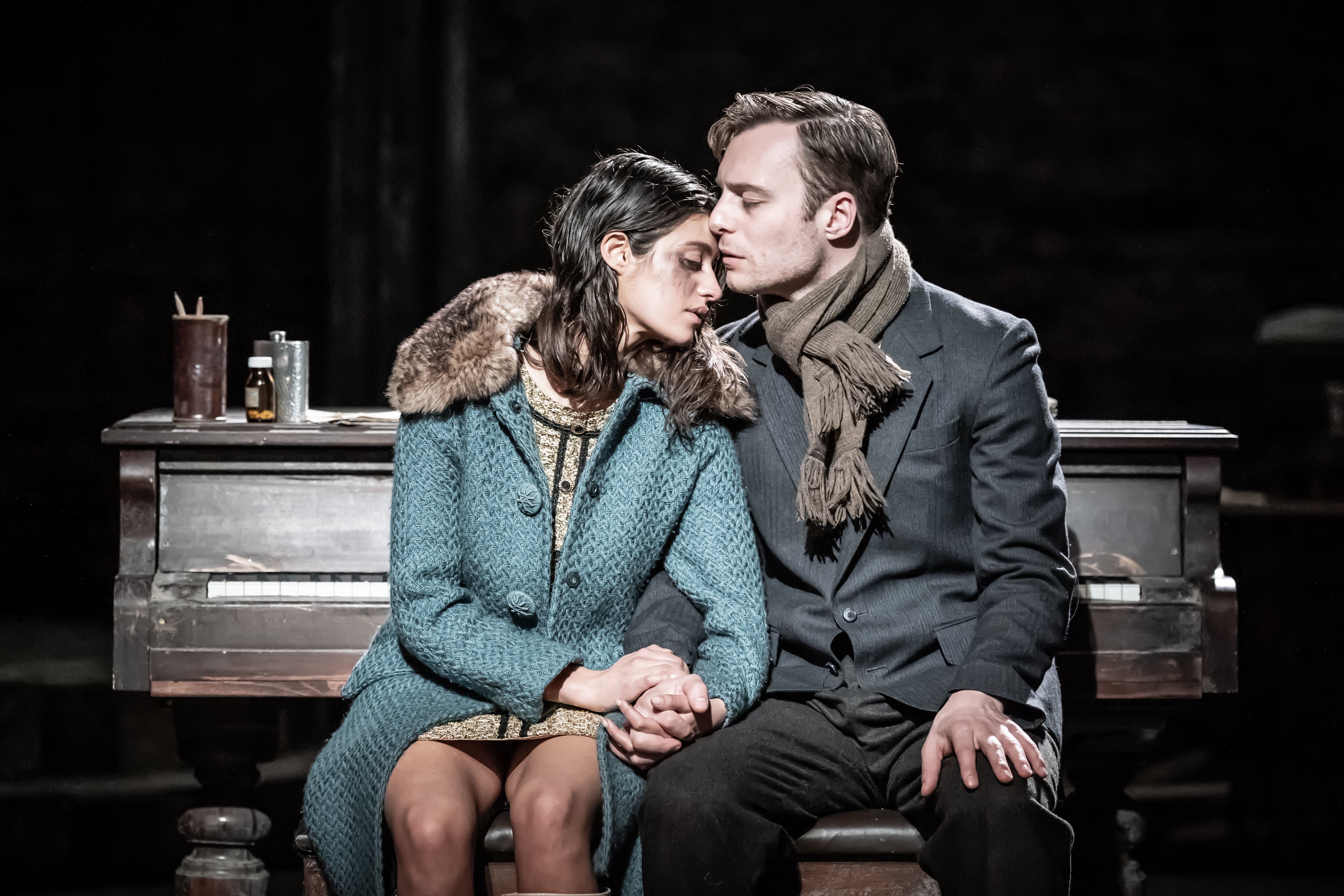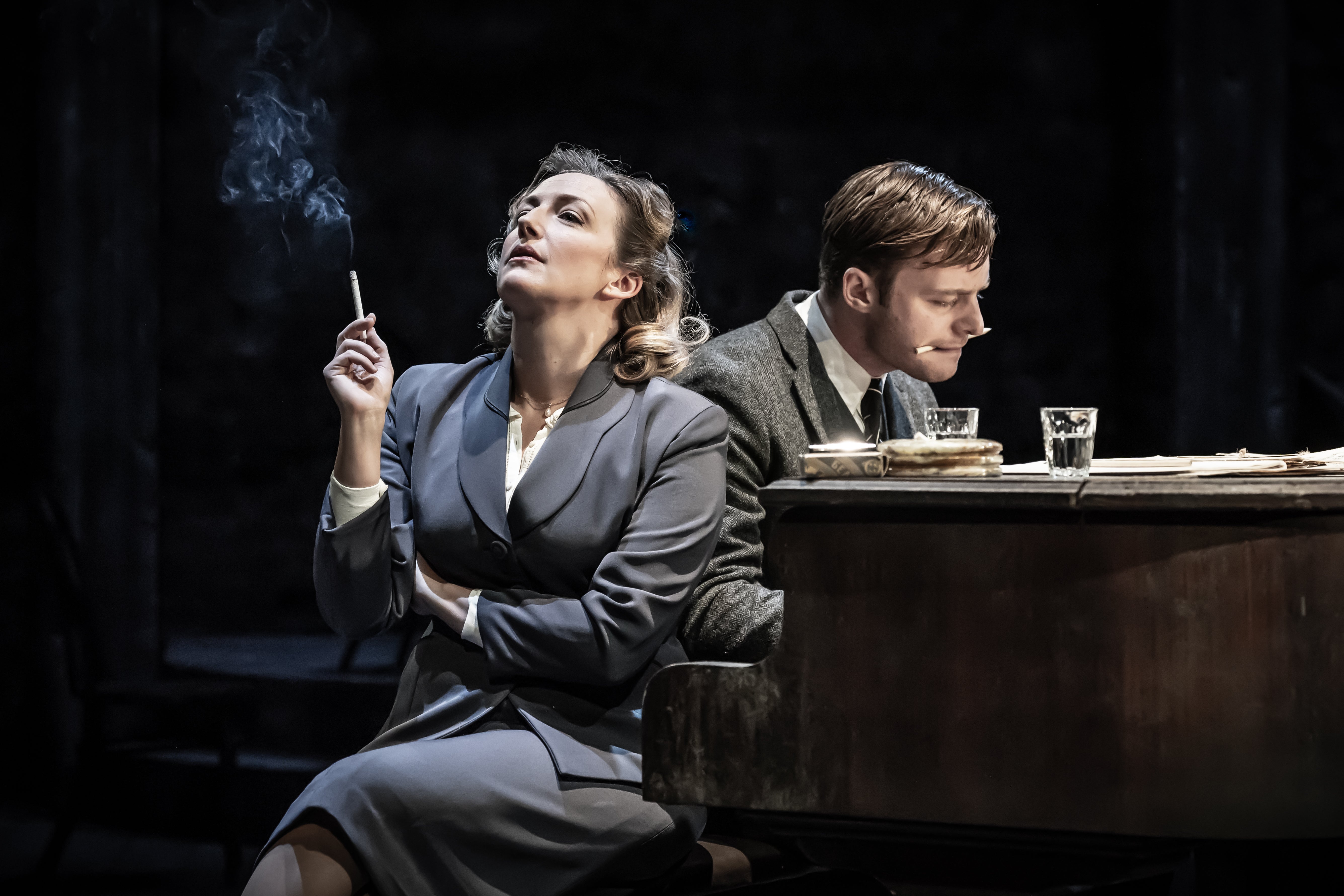Cold War review: Stylish staging of love in post-war Poland is strangely rootless
Elvis Costello’s tame songs and Rupert Goold’s detached, hip production make this stage adaptation of Paweł Pawlikowski’s 2018 film lack its original warmth and richness

In a season of red-ribbon-wrapped happy endings, Cold War serves up a jarringly gloomy kind of love story. Its protagonists meet in post-war Poland, then get trapped on opposite sides of the Iron Curtain, each fatally obsessed with a life that’s always out of reach. Rupert Goold’s stylish Almeida staging of Paweł Pawlikowski’s 2018 film is full of abrasive chemistry and rough magic. But it still feels like a slightly bizarre, rootless enterprise, especially when you factor in its tame and very un-Polish score of songs (new and existing) by Elvis Costello.
Costello’s tunes have a gentle melancholy that’s at odds with the raw, self-destructive agony of this story’s lovers – and that’s easily overpowered by the impassioned Polish songs they spend their careers singing. Conor McPherson’s book deftly sketches their collision course. Zula (Anya Chalotra) hears that casting is underway for a new folk troupe, designed to raise peasant culture in newly Communist Poland, so she turns up with ambition burning in her eyes. Odd and forceful, Chalotra is every inch the woman who sleeps with a knife under her pillow and pummels the world into loving her. Her singing talent is channelled by composer Wiktor: Luke Thallon becomes her affable, easily dominated foil, forever half-smiling as though bemused by the mess his life has become.
The early scenes are bewitching. Simon Hale’s arrangements of Polish folk songs set the theatre ringing with discordant harmonies, while Goold’s direction captures the tensions that underscore them in pacy scenes. Soon, this troupe is under pressure to sing about the virtues of Soviet agricultural machinery, instead of the more ancient lures of love and the devil. And Wiktor starts to imagine a different life, escaping into the western side of Berlin on the night of this group’s greatest concert to date.
Of course, Zula follows. But their life in Paris is less than satisfying, both for them, and for an audience that sinks into the torpor of their precarious existence. Goold directs these scenes with a kind of detached, hip wryness: the story’s darker twists feel weird dropping from the mouths of a couple who could be apathetically sipping negronis in Soho House.
It’s also odd that a story about being painfully spilt between two cultures has so little of Poland in it. When Zula introduces her baby to her estranged lover, the Polish syllables of the infant’s name are so unexpected that the audience titters, instead of sharing Wiktor’s agony.

It’s a moment that reminds us of how much context is missing here. Costello’s songs have a weary beauty to them, but it’s not enough to restore the lost richness of these lovers’ world. This is a story where culture is worth fighting for, worth risking everything to return to: where East and West are locked in a battle that’s fought with music and song, as well as tanks and secret police. By detaching Cold War from its Polish setting, Goold creates something that’s stylish and intermittently moving – but lacking the fire that would make its love story blaze bright.
Almeida Theatre, London, until 27 Jan



Join our commenting forum
Join thought-provoking conversations, follow other Independent readers and see their replies
Comments